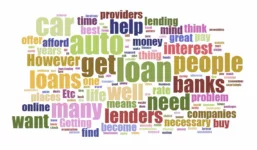Some are much better than others in terms of repayment and interest rate, but the world makes it incredibly easy to get into debt. There are offers just about everywhere to lend you money. Store credit, bank loans, car loans – they come under many different headings and advertisements. Here are a few, from big to small, and a little about how they work.
Home Loans/Mortgages
2014 was the first year since the 80s that more people owned their homes outright than were paying a mortgage. The number of people paying at least one mortgage is still high though.
A mortgage or home loan is typically a large amount of money borrowed from a bank in order to purchase a family home. It requires a hefty amount of paperwork to make sure you have a stable job and steady income. This is assurance for the bank that you will be able to pay the loan back.
Typical interest rates vary but are usually based on the country’s prime lending rate at that time. Repayment length is around 25 years. Most banks will look at your current income and expenditure to determine the amount they are willing to lend and the rate of repayment. If for some reason you can’t finish paying back your loan, the bank will seize and sell your home, or other collateral for the balance.
Car Title Loans
Very few of us have spare cash at our disposal at a moment’s notice, but if you need a little extra for a trip, or for a family or medical emergency, a car title loan is ideal. It is usually offered by a private company like Montana Capital Car Title Loans. The loan is based on the amount of money you need, the value of your car, which acts as collateral, and your ability to repay – again based on your earnings.
This is a preferable alternative to selling or pawning your possessions, primarily because you sacrifice little. Pawning usually entails ‘selling’ something until you can afford to buy it back, for significantly more than you sold it for. A car title loan simply offers some security for the loan company in the form of your car but allows you to keep and use it. As with any loan, a certain amount of interest is a given.
Credit
A credit card functions as a short term, high-interest loan, essentially allowing you to spend more than you earn each month. It can be useful to have, should you ever need a bigger loan – you can show that you have good credit history. It also serves its purpose when you have unexpected expenses, like car repairs.
If paid back within a certain time frame, the interest is minimal or non-existent, but most banks don’t discourage, and often actually encourage increasing your credit limit, making it easy for it to pile up, sending you spiraling into unnecessary debt.
If you can avoid borrowing money, do. But if you need to, a low risk, low-interest loan is your best option.








